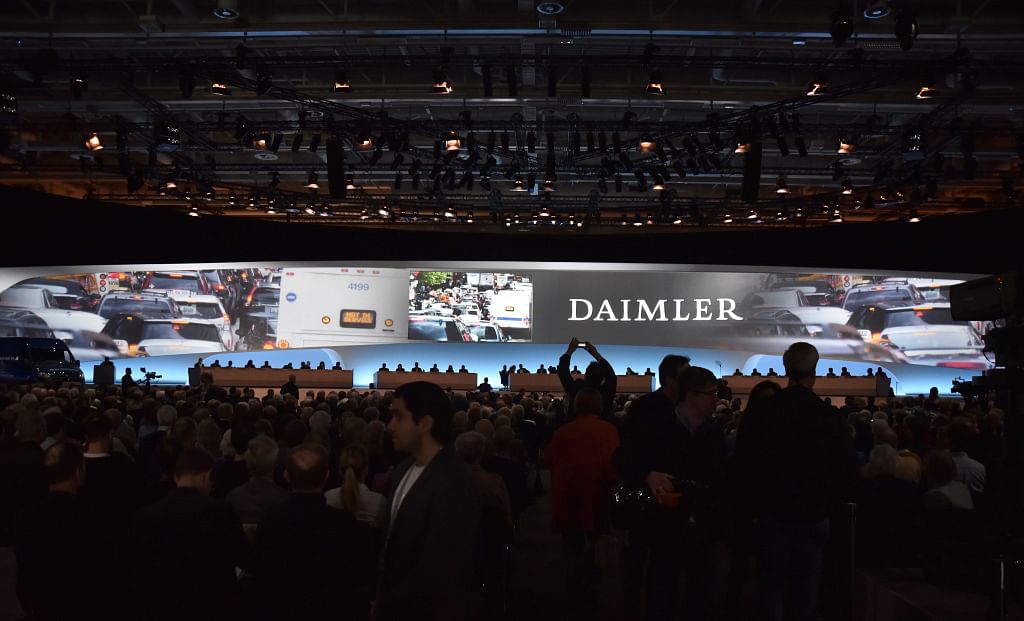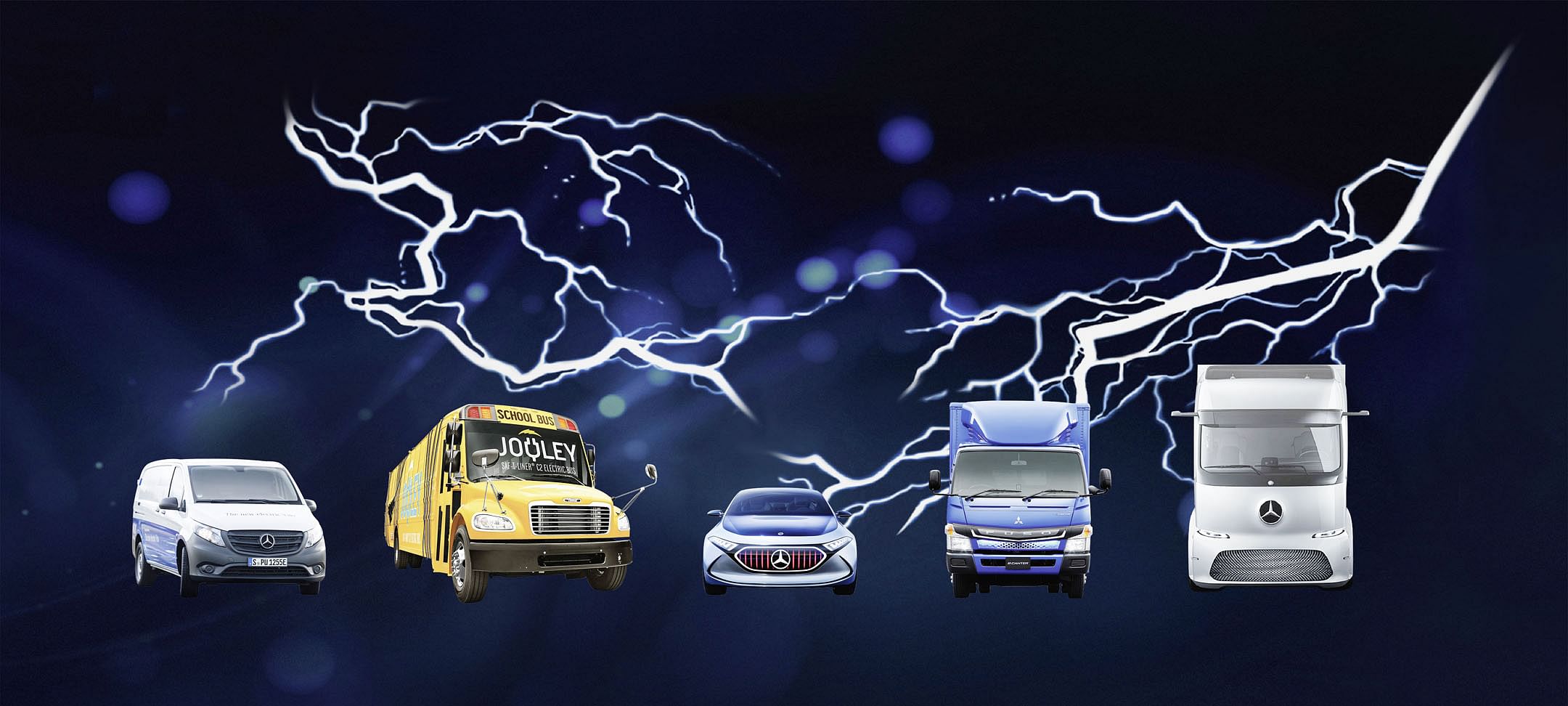Daimler targets 9% return on sales across global markets
The global automobile major is targeting returns of 8-10 percent for Mercedes-Benz Cars, 8 percent for Daimler Trucks, 9 percent for Mercedes-Benz Vans and 6 percent for Daimler Buses.
German vehicle manufacturer Daimler is targeting a sustainable return on sales (profit margin) of 9 percent through its products across global markets. It is targeting returns of 8-10 percent for Mercedes-Benz Cars, 8 percent for Daimler Trucks, 9 percent for Mercedes-Benz Vans and 6 percent for Daimler Buses.
Addressing the company’s annual shareholder meeting today in Berlin, Manfred Bischoff, chairman of the Supervisory Board of Daimler AG, said: “Daimler mastered many challenges extremely well in FY2017 and achieved outstanding results. New records were set for unit sales, revenue, earnings and profitability. Daimler is now more successful than ever before. In the mobility sector, which is currently being reinvented, further fundamental changes will be necessary also for Daimler in order to stay successful.”
He added that the company’s goal is to reshape individual mobility with sustainable products and innovative services. And to get there, the key to success would be intermeshing mobility concepts with drive technologies. “The planned organisational realignment through Project Future will make Daimler faster, more flexible and more digital, and will thus secure its future strength."

In 2017, the Daimler set new records for unit sales, revenue, Group EBIT and net profit, the Group sold approximately 3.3 million vehicles, revenue amounted to 164.3 billion euros (Rs 125,590 crore) and EBIT at 14.7 billion euros (Rs 112,367 crore), which was significantly higher than in the previous year. The net profit grew 23.86 percent to a new high of 10.9 billion euros (Rs 83,319 crore) (2016: 8.8 billion euros or Rs 67,267 crore).
Daimler is looking to implement its biggest transformation in its history with focus on five strategic areas – expanding its core business, pushing forward with the CASE (connectivity, autonomous, shared mobility and electric mobility) topics, further developing the corporate culture, optimising the Group structure and, mainly being customer-centric.

For expanding its core business it will invest in new products, that includes launching more than a dozen new car models in 2018, among it in the first three months of this year, the new Mercedes-Benz G-Class, the new A-Class and the Mercedes-AMG GT four-door have already been launched. Dr Dieter Zetsche, chairman of the Board of Management of Daimler AG and head of Mercedes-Benz Cars, promised: “Our product offensive is maintaining its fast pace.”
“It is absolutely clear that we automakers are responsible for reconciling individual mobility with climate protection and clean air,” Dr Zetsche noted.
Elaborating on its second focus area CASE, where it aims for success in the future, Dr Zetsche said: “For a long time, our business model was clearly defined: We develop, build and sell outstanding vehicles. We will continue to do that. But it is no longer the whole story, with connectivity (Connectivity), autonomous driving (Autonomous), shared mobility (Shared) and electric mobility (Electric), an almost infinite number of additional opportunities will be created to delight the customers.”
Commenting on the agreement between Daimler and BMW for developing mobility services, which was signed in March 2018, Zetsche said: “At Daimler, we initiated the transformation from an automobile manufacturer into a mobility provider about ten years ago. That way, we can offer our customers a complete package that ranges from car sharing to ride sharing, and to parking, and charging.”
Concluding his address Zetsche said: “Since we invented the automobile, the world has changed. The success of the automobile has become its biggest challenge. Our task is to solve this paradox. Our passion to create better future is part of our DNA. We know this is a very ambitious goal. But that’s exactly what our founding fathers did. And it’s time to do it again.”
RELATED ARTICLES
Autoliv Plans JV for Advanced Safety Electronics With China’s HSAE
The new joint venture, which is to be located strategically near Shanghai and close to several existing Autoliv sites in...
JLR to Restart Production Over a Month After September Hacking
Manufacturing operations at the Tata Group-owned British luxury car and SUV manufacturer were shut down following a cybe...
BYD UK Sales Jump 880% in September to 11,271 units
Sales record sets the UK apart as the largest international market for BYD outside of China for the first time. The Seal...






 05 Apr 2018
05 Apr 2018
 6913 Views
6913 Views





 Ajit Dalvi
Ajit Dalvi




